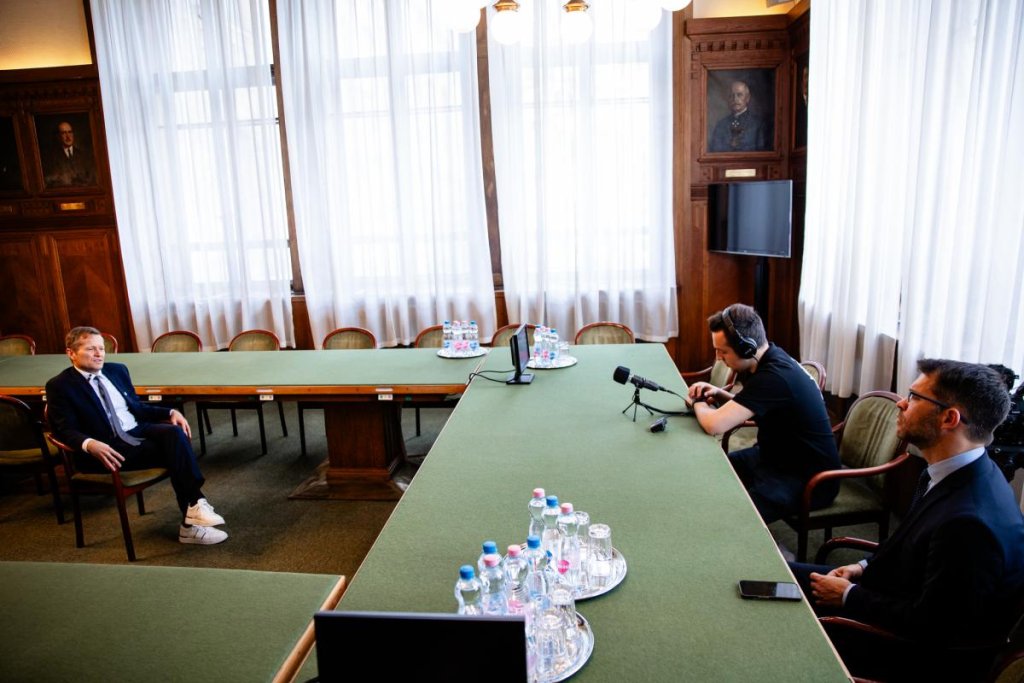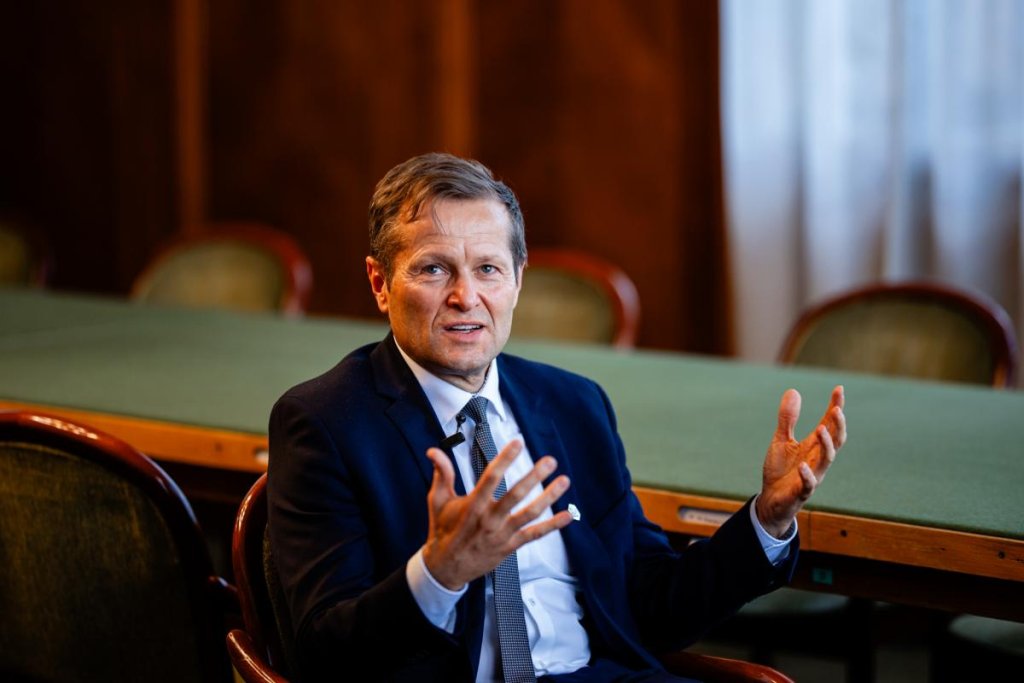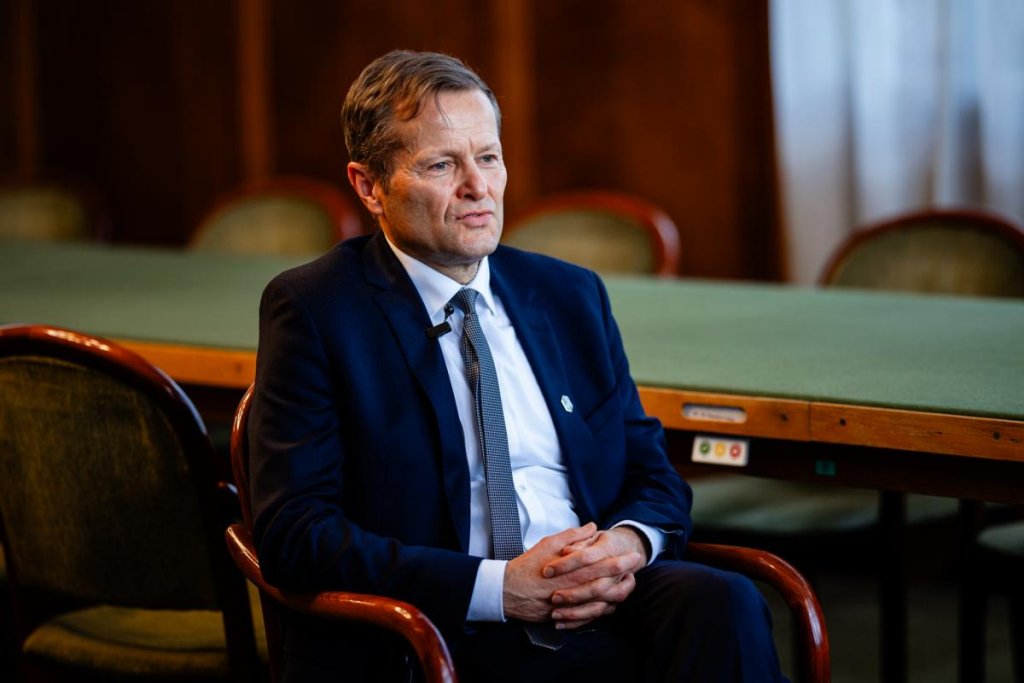News feed
Great teachers not only pass on their knowledge, they also inspire
2024. 06. 06.
Ferenc Krausz captivated an audience of 600 across two BME lecture halls on 11 May. The Nobel laureate also gave an interview with the website of his alma mater.
How important do you think it is to deliver educational outreach lectures like the one today?
Offering lectures is practically all I’m doing this year. I’ve recently returned from a series of talks on the West Coast of the US, and in two weeks, I’m off to China, where I’ll be giving six lectures. In the second half of the year, I have commitments to speak in Austria, Germany, and Italy. Undoubtedly, this is in part at the expense of scientific work, but I’m fortunate to have a well-organised team with a proper hierarchy and a competent team leader in each area. They can ensure continuity of work even while I’m off promoting our discipline. The Nobel Prize has provided us with a unique opportunity by putting our field of expertise in the spotlight, and I believe we must leverage this recognition to inspire future generations to join our research field and help address pressing issues.

Looking back, choosing a high school was your decision or that of your parents?
I was the one to decide on the high school I would attend. Naturally, at the age of 14, discussions with my parents were part of the process. They gave me a free hand in choosing my path even at that age, so I made the final call feeling that the Táncsics Mihály Secondary School in Mór had everything I needed. The peace of the family home, combined with the convenient proximity of the school, just a five-minute walk away, created an ideal environment for me to grow at my own pace. My teachers in Mór were excellent, and I also had access to issues of the Mathematical and Physical Journal for High Schools (KöMaL) dating back to 1960, stored in my school’s basement. I relished solving these problems at home in a family environment, complementing my classroom learning. It was a wonderful time, and I wish everyone could experience such a nurturing childhood, laying the foundations for their future endeavours.

What are your recollections of BME and your university professors?
The accomplishments with my team over the decades since graduation are firmly rooted in the knowledge I acquired at BME. The scientific rigour and thoroughness instilled in us during our engineering training at the Faculty of Electrical Engineering and Informatics have been indispensable. The ability to meticulously design modern equipment and measuring instruments based on the fundamental laws of physics and nature allows us to delve deeper into understanding natural processes. This, in turn, paves the way for advancements in existing and future technologies. We can leverage this understanding to propel the development of science and technology. I wholeheartedly encourage anyone contemplating an engineering career to choose BME – have faith in the University’s excellent professors, and you will be in good hands and graduate equipped with a thorough mastery of the field. The quality of education hinges largely on the attitude and enthusiasm of the instructors, and I was fortunate to have had exceptional lecturers at BME – some of them globally renowned. They provided me with not only technical and scientific knowledge but also a certain mindset and a degree of enthusiasm that has been a driving force throughout my entire career, helping me overcome various obstacles. I would like to highlight one of my instructors, Károly Simonyi, who – in the eyes of many, including myself – was one of the preeminent physics professors of the 20th century, even on a global scale. His seminal work, A Cultural History of Physics, also underscored his expertise. His lectures were simply captivating: you felt as if he saw the electrons and the oscillations of light waves in what were then considered to be immeasurably fast processes. This also inspired me to keep asking the question: are these processes truly immeasurably fast, or is it somehow possible to access them? In fact, it was the knowledge and inspiration I gained from his lessons that allowed me to ask the right questions, which set the trajectory of my career.
What was the sense of community like at BME during those years?
We had small group classes as well as collective lectures attended by the entire year group. Beyond the knowledge gained in classes, there was a strong emphasis on community building, and helping and supporting each other when needed. We naturally realised that our collective strength surpassed our individual efforts. This showed us the importance of team spirit, which is a prerequisite for progress in modern experimental science.

Do you plan to involve BME students in your research?
Absolutely. Leveraging the resources and scientific background of the Center for Molecular Fingerprinting (CMF), we are establishing the János Neumann Institute of Data Science with the goal of starting postgraduate training probably as early as next year. We extend a warm invitation to BME students of electrical engineering, physics or chemistry, as well as other fields.
Finally, a question that might seem strange for a Nobel laureate: is there anything that you would do differently in retrospect?
We should have started the medical application of our research results earlier. In hindsight, we could have done so in 2005, rather than waiting until 2015. Regrettably, ten valuable years were lost. Now that we can save people's lives by taking a blood sample, I feel like every day we didn't do it was a day wasted.
MB-KJ
Photo: B. Geberle
